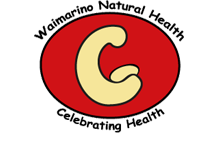The Waimarino Guide to Coconut Oil
Coconut oil is an edible plant oil and a dietary source of healthy saturated fats, which have been consumed for thousands of years. Its uses range from cooking and baking to skin and hair health.
- Certified organically grown and harvested coconuts contain no chemical toxins to interfere with their natural goodness.
- The process of cold-pressing virgin coconut oil used in our products helps retain maximum flavour and nutritional benefits.
- The result is a rich energy source and food with multiple uses suited for everyday health and wellness routines.
How to include Coconut Oil in your Cooking
There are myriad different ways to consume coconut oil. It can be used to replace any other vegetable oil, as well as butter, in cooking and baking to supply a smooth buttery taste and subtle aroma.
As a stir-frying and deep frying oil, it copes well with high heat and is especially delicious in Thai and other asian stir-fries. Coconut oil is also popular in raw foods such as raw cheesecakes.
Storage and Shelf Life
In New Zealand's climate, the oil is generally solid at or below room temperature (although it will melt as the temperature climbs).
This makes it an excellent way to achieve the creamy consistency you desire, while delivering a healthy energy boost.
You can also use coconut oil as a preservative, for example, by coating eggs with a thin layer of melted (but not hot) oil.
Coconut oil for your skin
The silky texture of this oil, combined with its solid state at cool to warm room temperatures, makes it an ideal base for soaps and other skin care products.
It can also be applied directly to your skin for a nourishing boost or to your hair to tame frizz and add shine, without the use of chemicals.
Gluten Free Skin Care
For individuals with gluten intolerance, coconut oil-based soap or skincare products can offer a gluten-free option for skin application.
Coconut Oil Composition
Coconut oil contains 92% saturated fats (in the form of triglycerides), 6% monounsaturated fats and 2% polyunsaturated fats.2
The fat in coconut oil is predominantly of the medium-chain fatty acid variety, and it plays a vital role in energy production as well as in the absorption of vitamins A, D, E and K.
Most saturated fats (whether from animal or plant origin) are composed of long-chain triglycerides.3 Coconut oil is unique in that it contains predominantly medium-chain triglycerides, which are absorbed and utilised very differently in the body than are long-chain triglycerides.
While coconut oil contains four long-chain fatty acids (palmitic acid, stearic acid, oleic acid, and linoleic acid), these represent less than 20% of the total fatty acid content.
Our bodies metabolise medium-chain fatty acids differently.
When we consume medium-chain fatty acids, they are readily absorbed intact across the gut wall, directly enter our bloodstream, and thereafter enter the liver for metabolism.4 This means that coconut oil can be quickly absorbed and utilised by the body to provide a rapid source of energy.3
The process of metabolising long-chain triglycerides is entirely different. For our bodies to utilise them, the fatty chains must be separated from the glycerol backbone by a digestive enzyme called lipase, which enables the fats to form micelles. The micelles are then absorbed and reattached to glycerol, and thereafter the triglycerides migrate through the lymphatic system and enter our bloodstream.
Another advantage of medium-chain triglycerides is that they can enter the mitochondria (the energy powerhouses inside our cells) without the need for the carnitine transport system, which is required for long-chain triglyceride absorption.
Because medium-chain triglycerides put little strain on the digestive system and are readily absorbed, coconut oil is often added to infant formulas and nutritional drinks for athletes.3
Medium-chain triglycerides (MCTs) are also lower in calories, with one gram providing 8.3 calories versus 9.2 calories per gram for long-chain triglycerides.
While the essential fatty acid content of coconut oil is low (approximately 2%), research has shown that medium-chain triglycerides and essential fatty acids work synergistically, which can improve their utilisation within the body by as much as 100%.
Medium Chain Fatty Acids
|
Fatty Acid |
Fatty Acid Percentage |
Actions |
|
Lauric acid Medium-chain fatty acid (C12:0) |
51% |
Studies have shown that lauric acid supports healthy cholesterol levels. Medium-chain triglycerides such as lauric acid have also demonstrated natural antibacterial properties.6 |
|
Myristic acid Medium-chain fatty acid (C14:10) |
19.5% |
Myristic acid acts as a signalling protein and is involved in numerous physiological reactions and regulations within the body. |
|
Caprylic acid Short-chain fatty acid (C8:0) |
6.60% |
Based on animal studies, caprylic acid from coconut oil helps support healthy cholesterol levels. |
|
Capric acid Medium-chain fatty acid (C10:0) |
6.5% |
Capric acid has been shown to possess natural antifungal and antibacterial properties. |
Where our coconut oil comes from
Waimarino Natural Health sources its organic coconut oil directly from Sri Lanka. Virgin coconut oil is produced from the fresh coconut kernel and is dried under temperature-controlled conditions that do not exceed 40° Celsius.
A cold-press technique is then used to express the oil.
This type of extraction process means that the end product still contains the natural polyphenolic antioxidants, and for this reason, it is considered superior to coconut oil derived from copra or dried coconut flesh.
Unlike soybean or corn oil, coconut oil does not contain any trans fats, which are now considered more harmful than saturated fats. Trans fats (also known as hydrogenated fats) are liquid fats made into solid fats by the addition of hydrogen atoms.
Because coconut oil is free of trans fats, it can be safely stored in clear bottles without degradation. Oil may be kept unrefrigerated for up to 3 months after opening.



